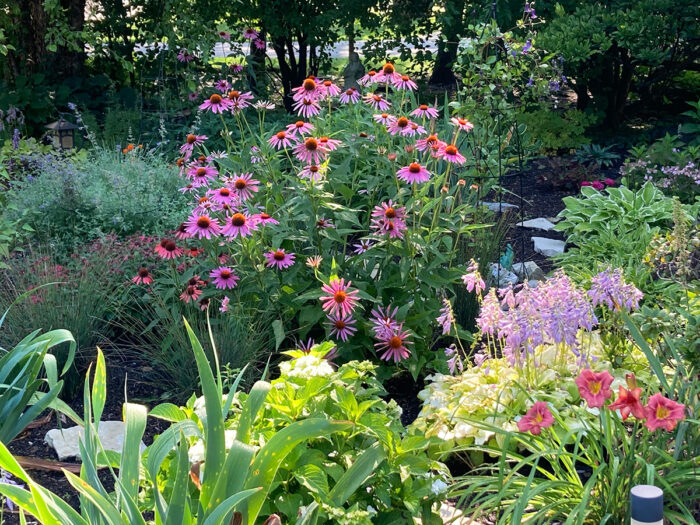
Hi GPODers!
Today we’re getting an exciting update on a project we saw the very beginning of last year. Nicki Snoblin decided to remove some of her front yard to create a bed for pollinator-friendly perennials. She shared the beginning process and earliest plantings here: Nicki’s New Garden Project (but Nicki has shared photos several times in the past so be sure to check out other parts of her garden in: Nicki’s Indoor Garden, Fall in Nicki’s Garden, and New Garden Inspired by the GPOD).
Today we finally get to see how this first year of growth went for Nicki, how things are looking, the lessons she’s learned, and what she is looking to do next.
Last year I sent in photos of a new garden I was creating in my front yard, hoping to create more full-sun planting space and attract pollinators. Now I’d like to share some pictures to show how it’s doing this year.
It was thrilling this spring to see most of the things I planted start coming up. Overall, I’m pleased, but there are a few mysteries. Why can’t I keep butterfly weed alive? What’s causing some of the anise hyssop plants to die and others to thrive? Why do deer tiptoe through the garden and nibble just certain plants over and over and not touch the others? Who invented Japanese beetles, and why?
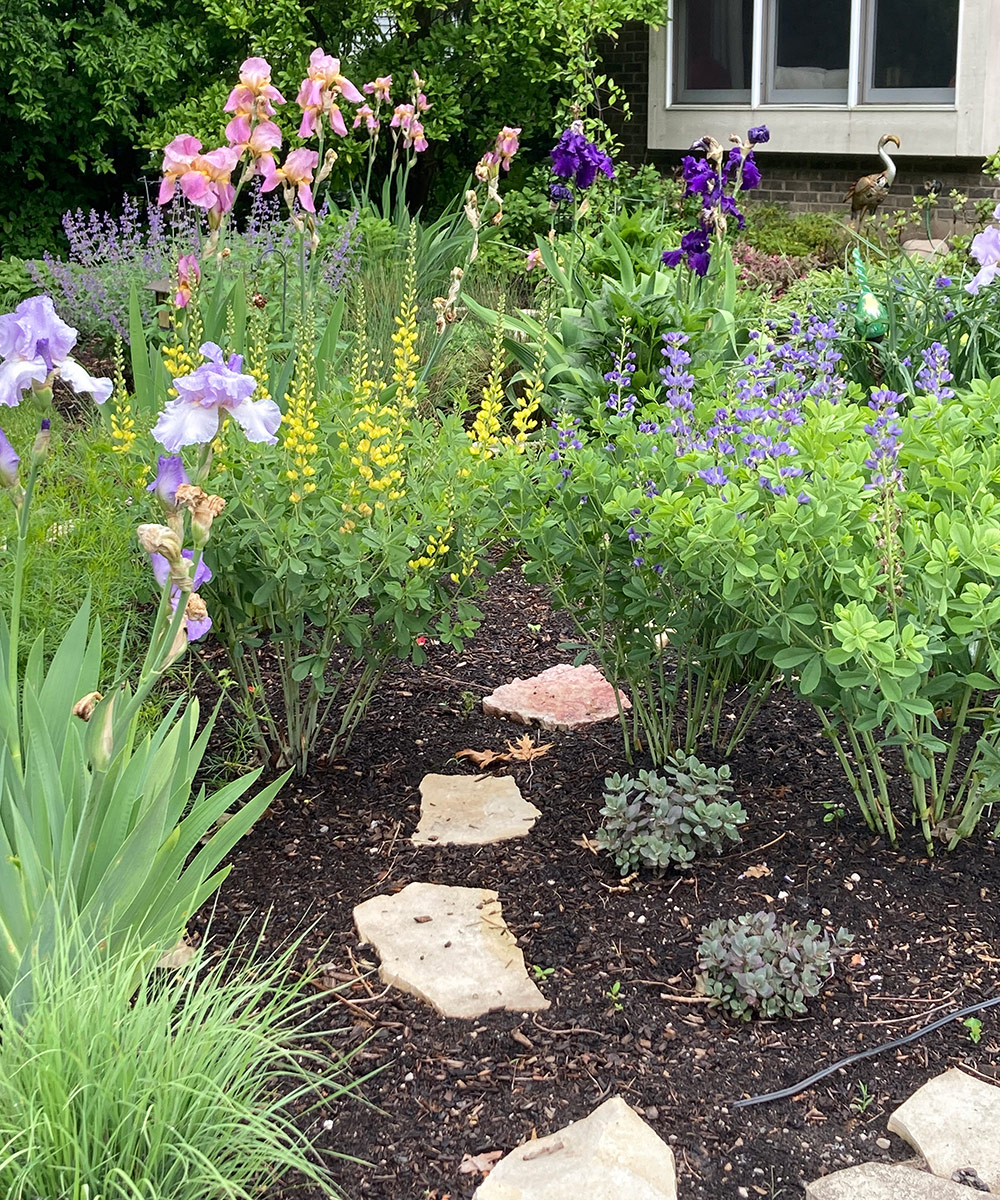
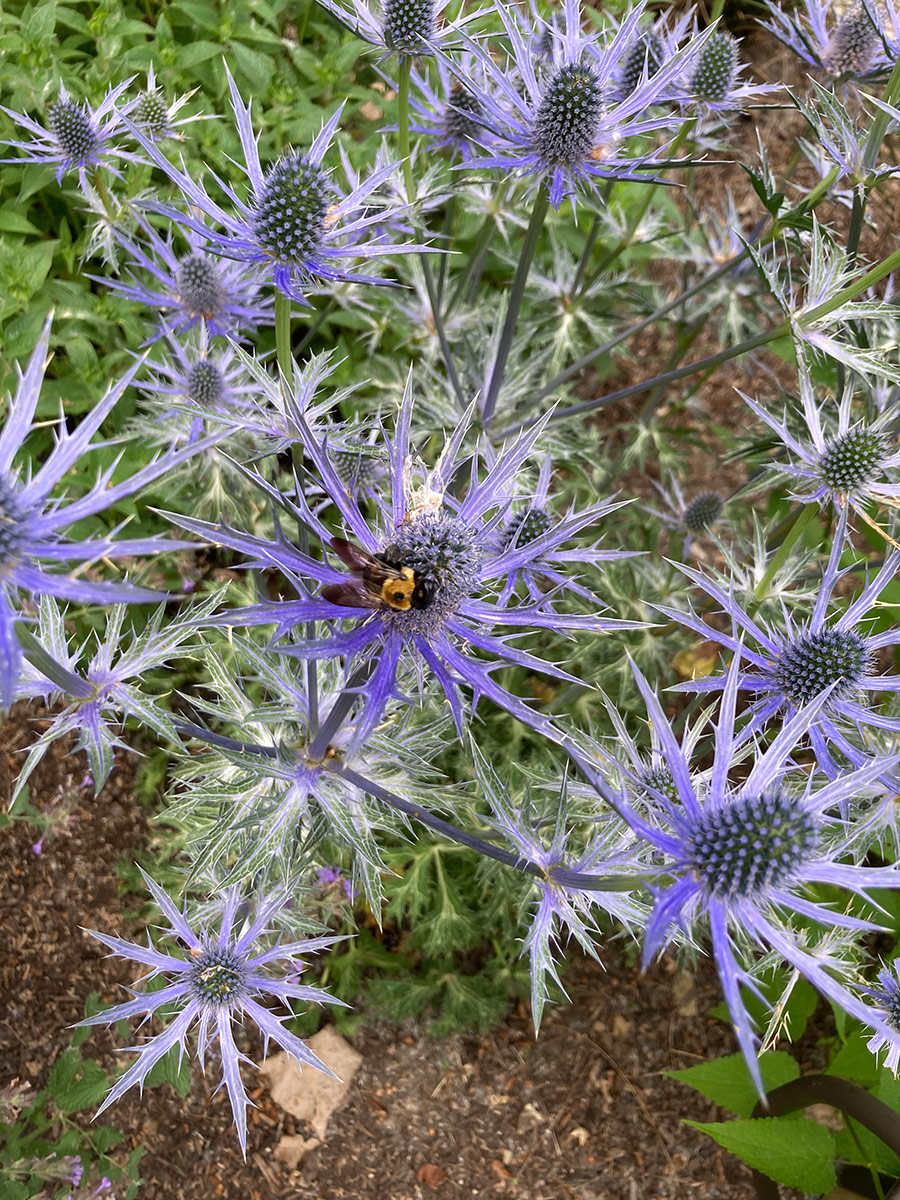 In June, the sea holly (Eryngium × zabelii ‘Big Blue’, Zones 5–9) bloomed spectacularly. Unfortunately, immediately afterward, it died down to the ground. I don’t have high hopes for it for next year; it really doesn’t like our heavy soil.
In June, the sea holly (Eryngium × zabelii ‘Big Blue’, Zones 5–9) bloomed spectacularly. Unfortunately, immediately afterward, it died down to the ground. I don’t have high hopes for it for next year; it really doesn’t like our heavy soil.
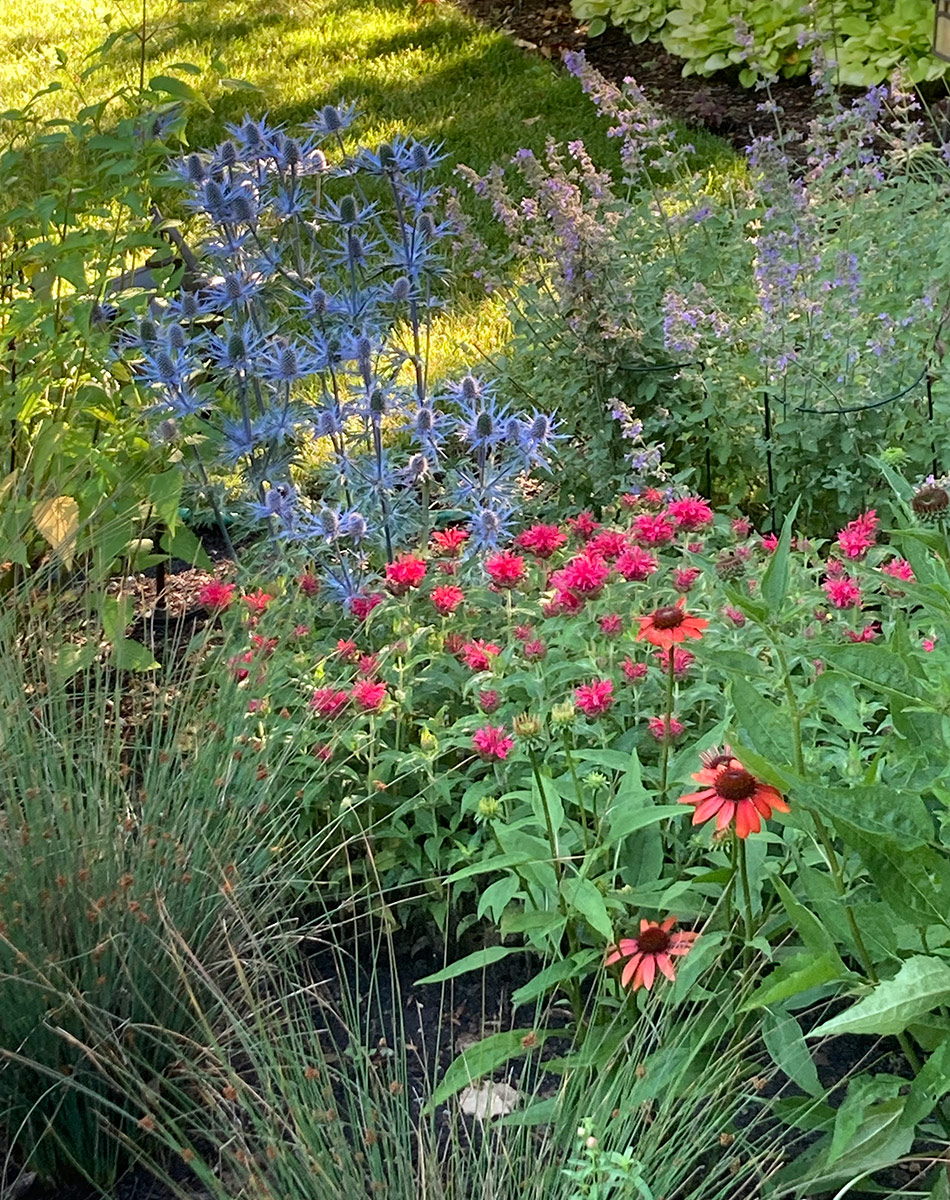
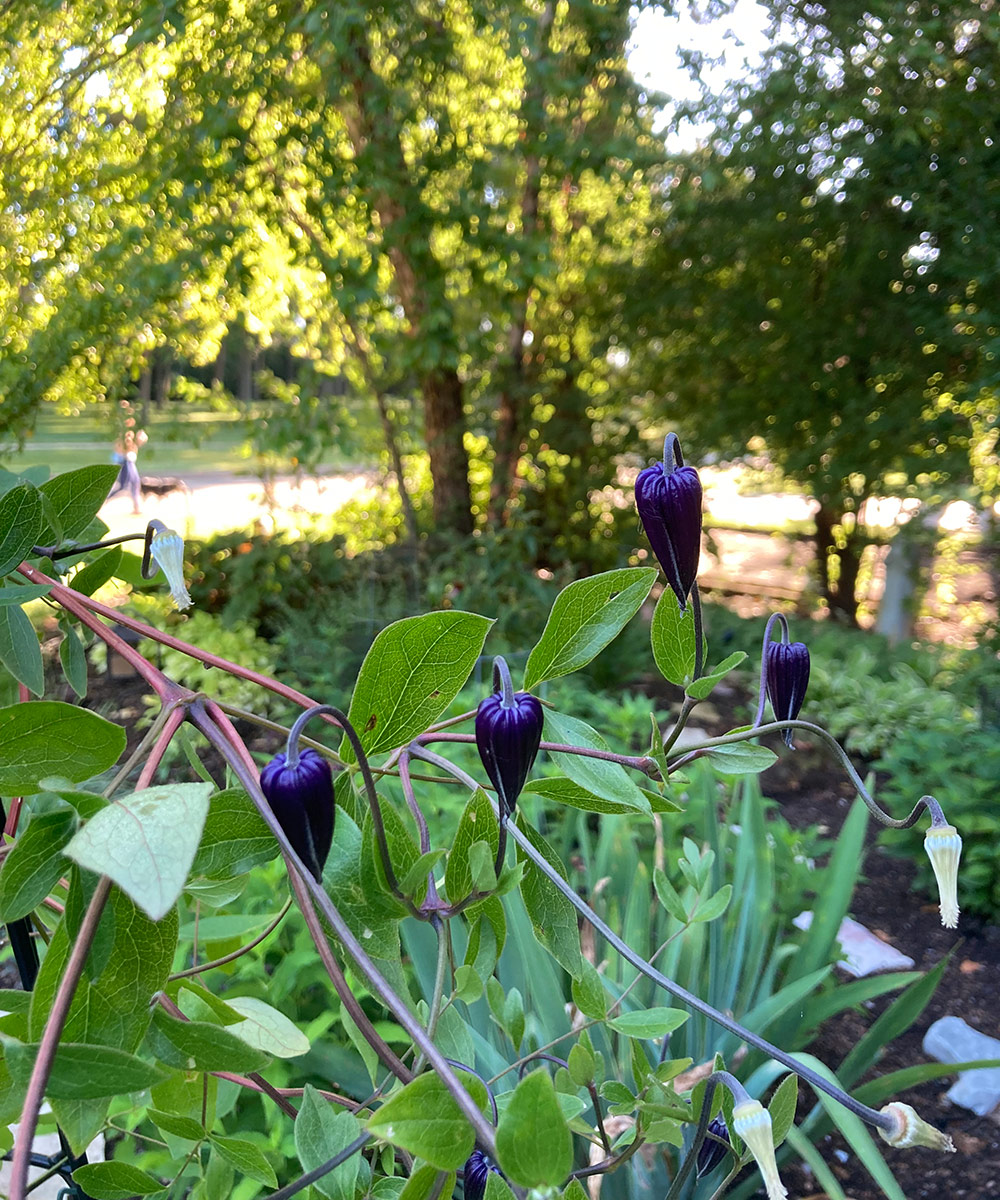 Clematis ‘Rooguchi’ (Zones 5–9) in bud.
Clematis ‘Rooguchi’ (Zones 5–9) in bud.
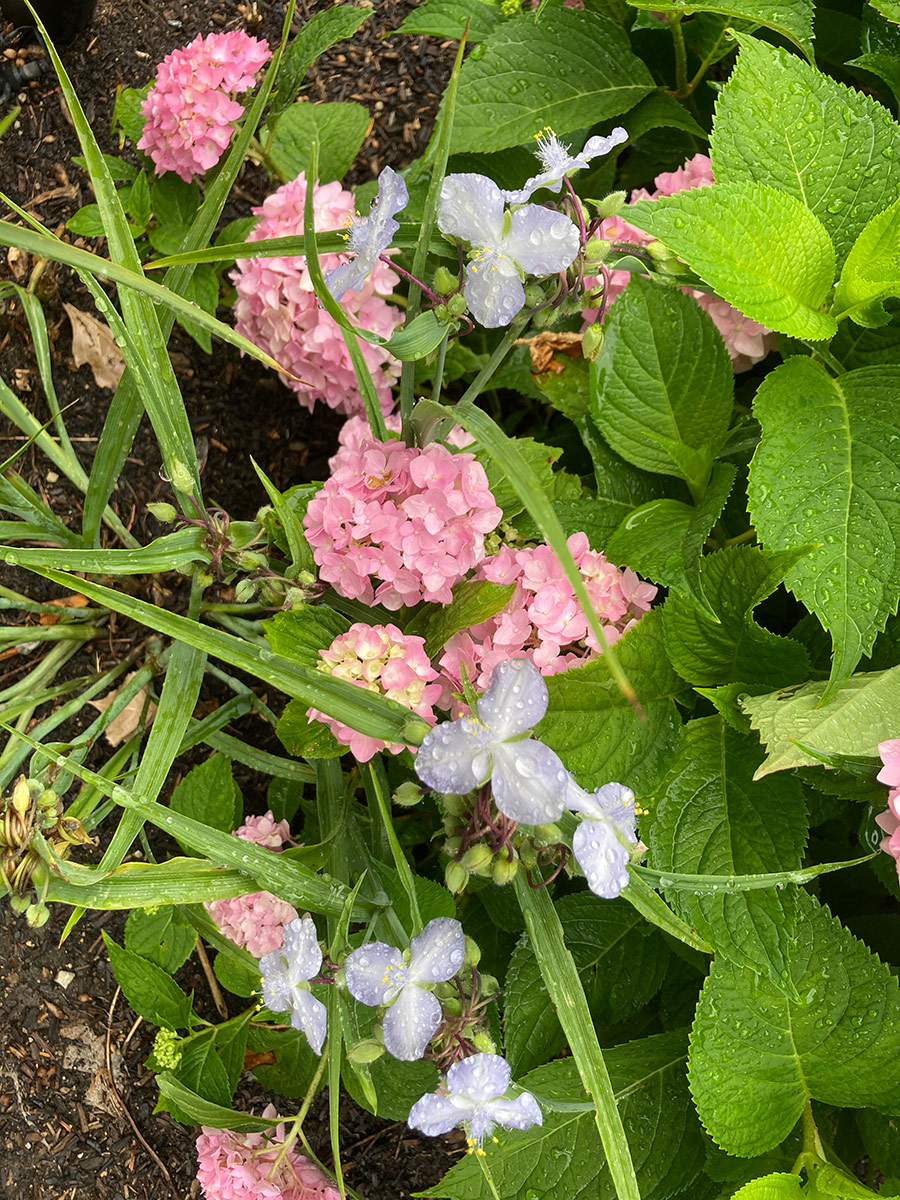
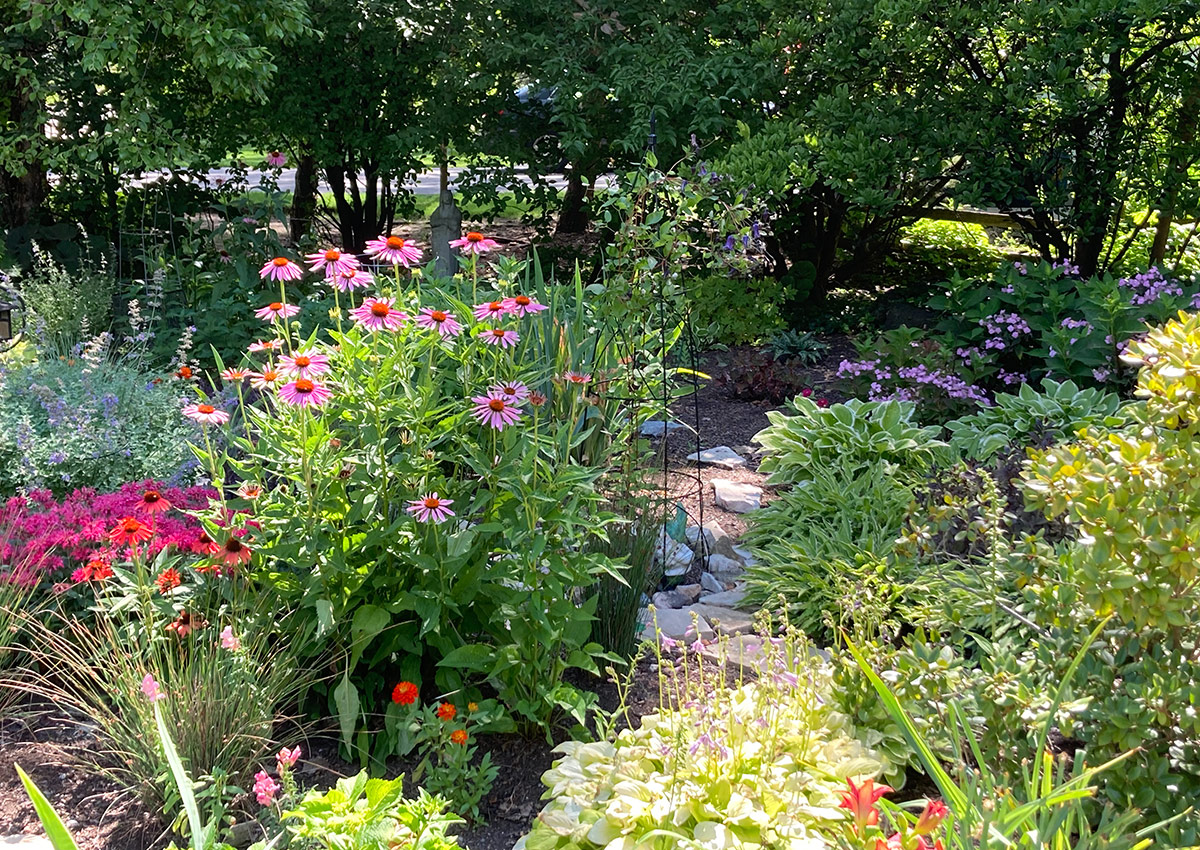
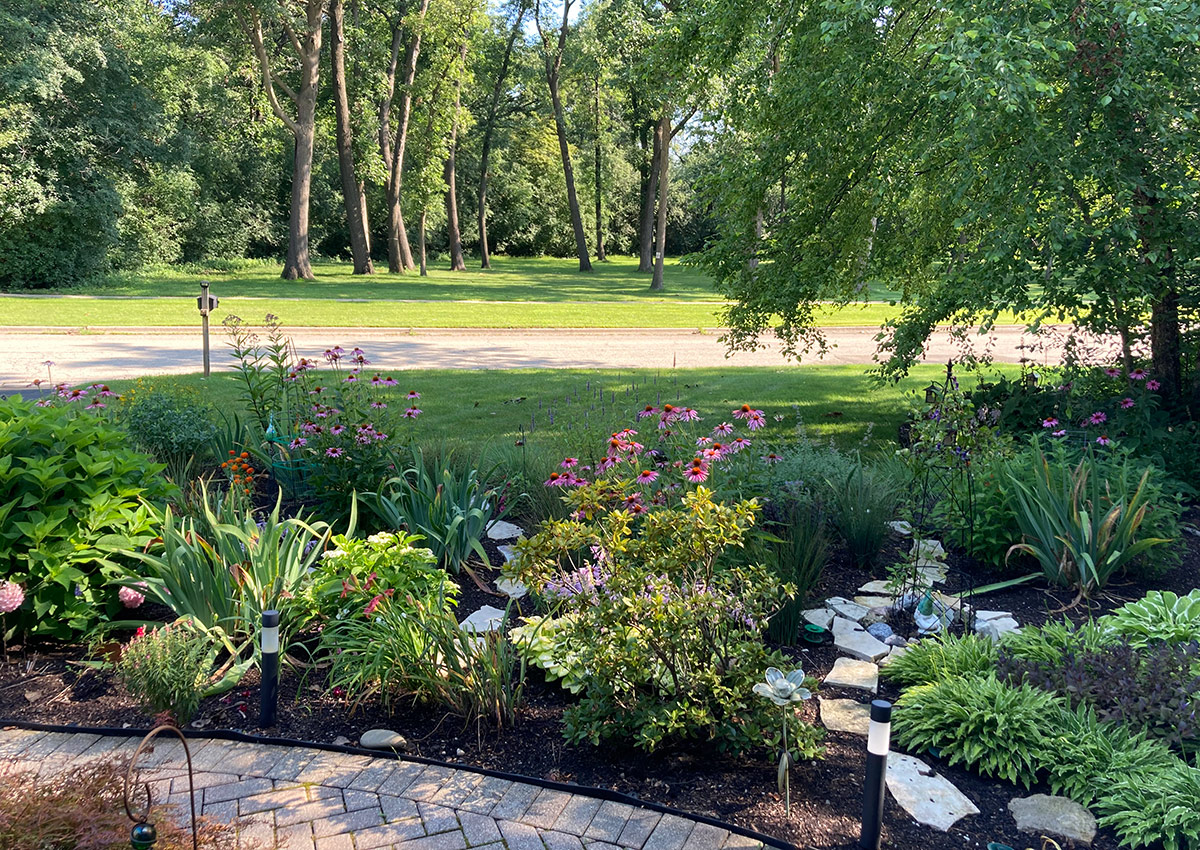
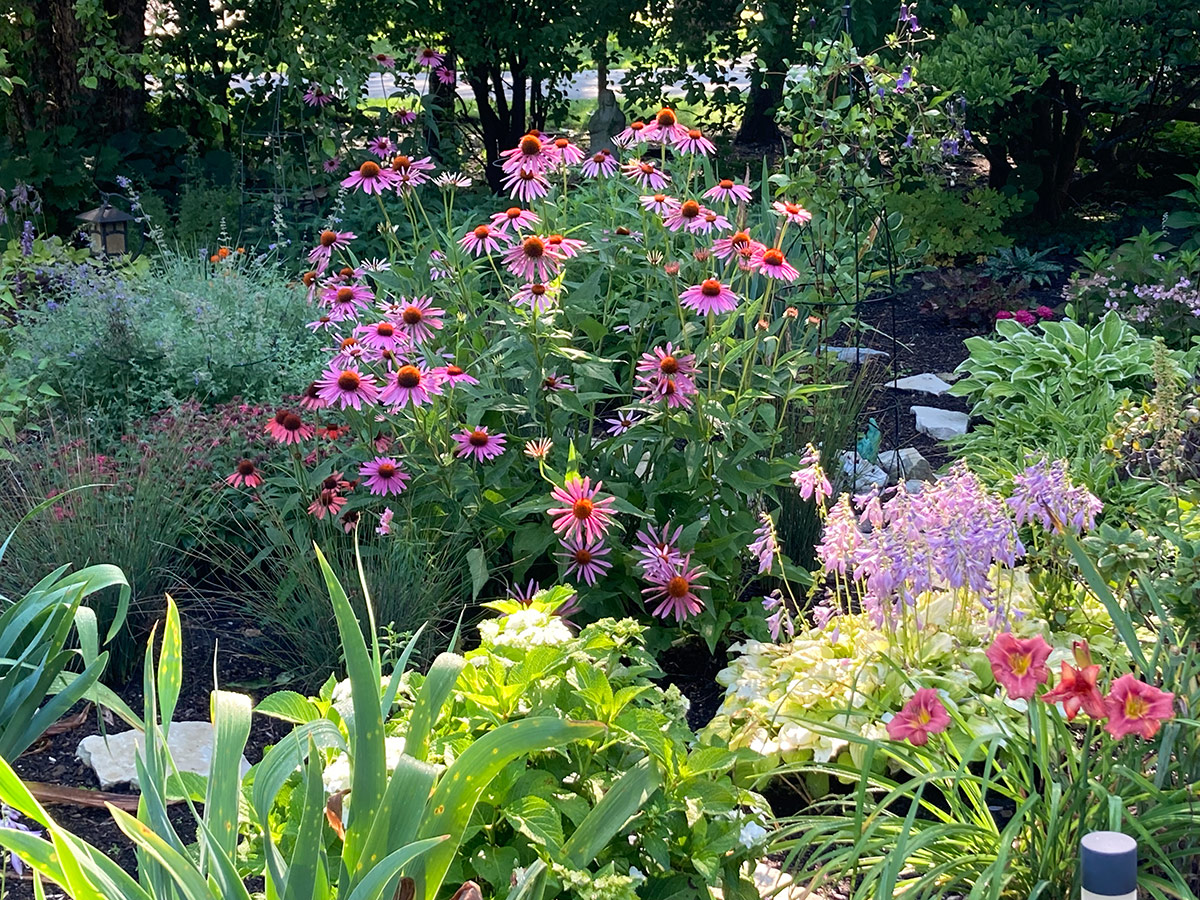
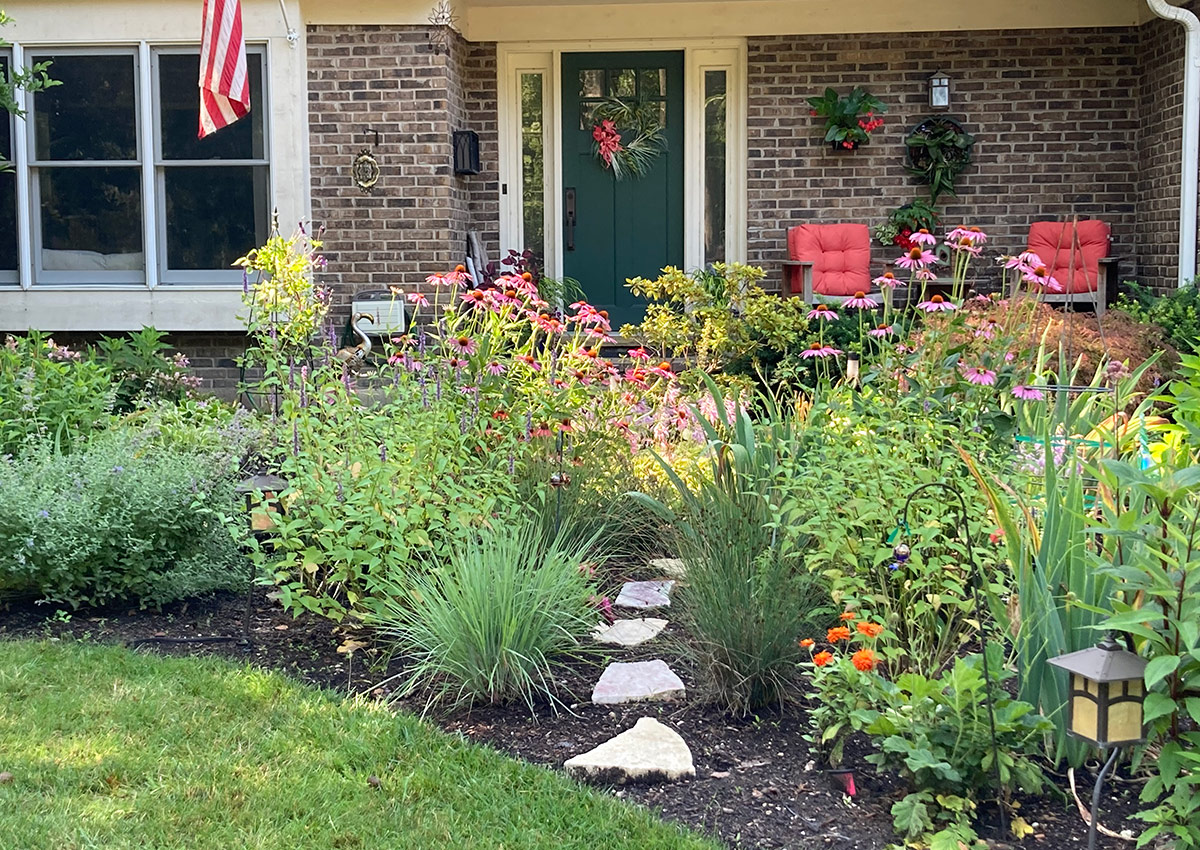
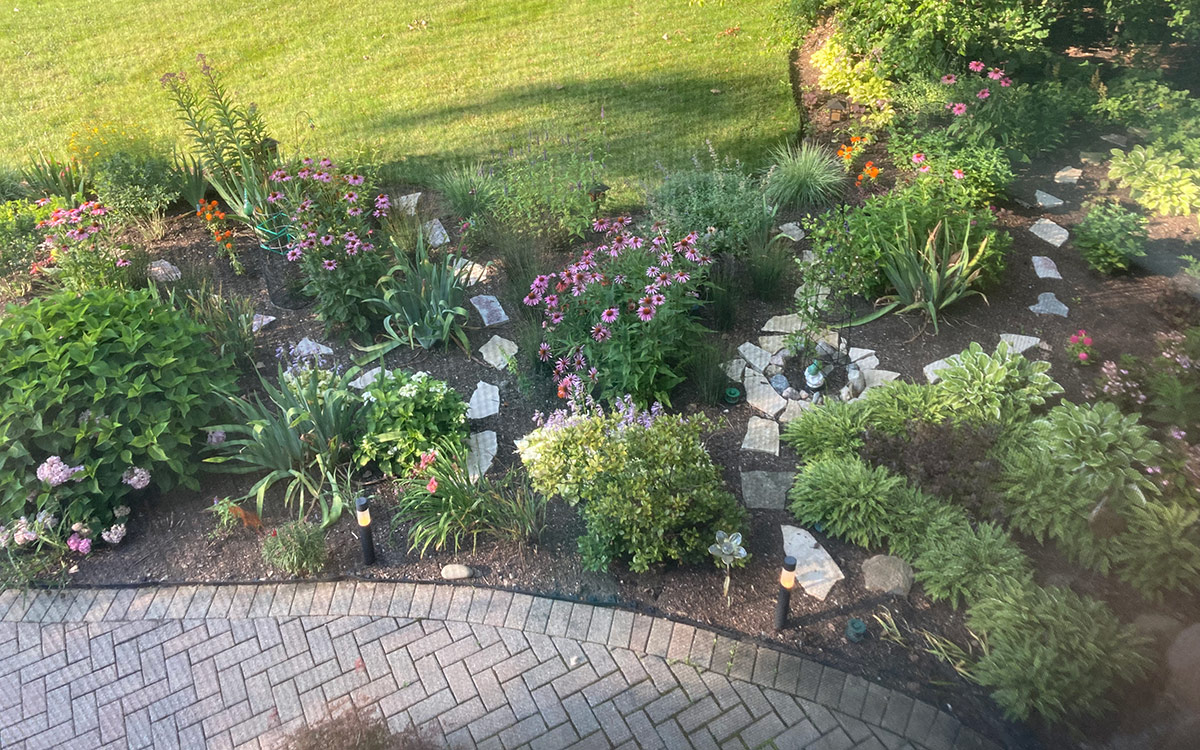
Thank you for sharing this update with us, Nicki. It’s incredible to see your front yard completely transformed, and hope to see how the garden continue to evolve next year!
And I hope Nicki has inspired everyone to take more pictures and document the progress of your projects! I know I’m usually more likely to end up three quarters done with something before I realize I never took a before shot… But taking some photos and documenting the journey can be extremely helpful for seeing how far you’ve come and what you need to continue to work on. And if you’ve been smart enough to document a project you worked on this summer, we’d love to see it! Follow the directions below to submit photos.
Have a garden you’d like to share?
Have photos to share? We’d love to see your garden, a particular collection of plants you love, or a wonderful garden you had the chance to visit!
To submit, send 5-10 photos to [email protected] along with some information about the plants in the pictures and where you took the photos. We’d love to hear where you are located, how long you’ve been gardening, successes you are proud of, failures you learned from, hopes for the future, favorite plants, or funny stories from your garden.
Have a mobile phone? Tag your photos on Facebook, Instagram or Twitter with #FineGardening!
Do you receive the GPOD by email yet? Sign up here.
Fine Gardening Recommended Products
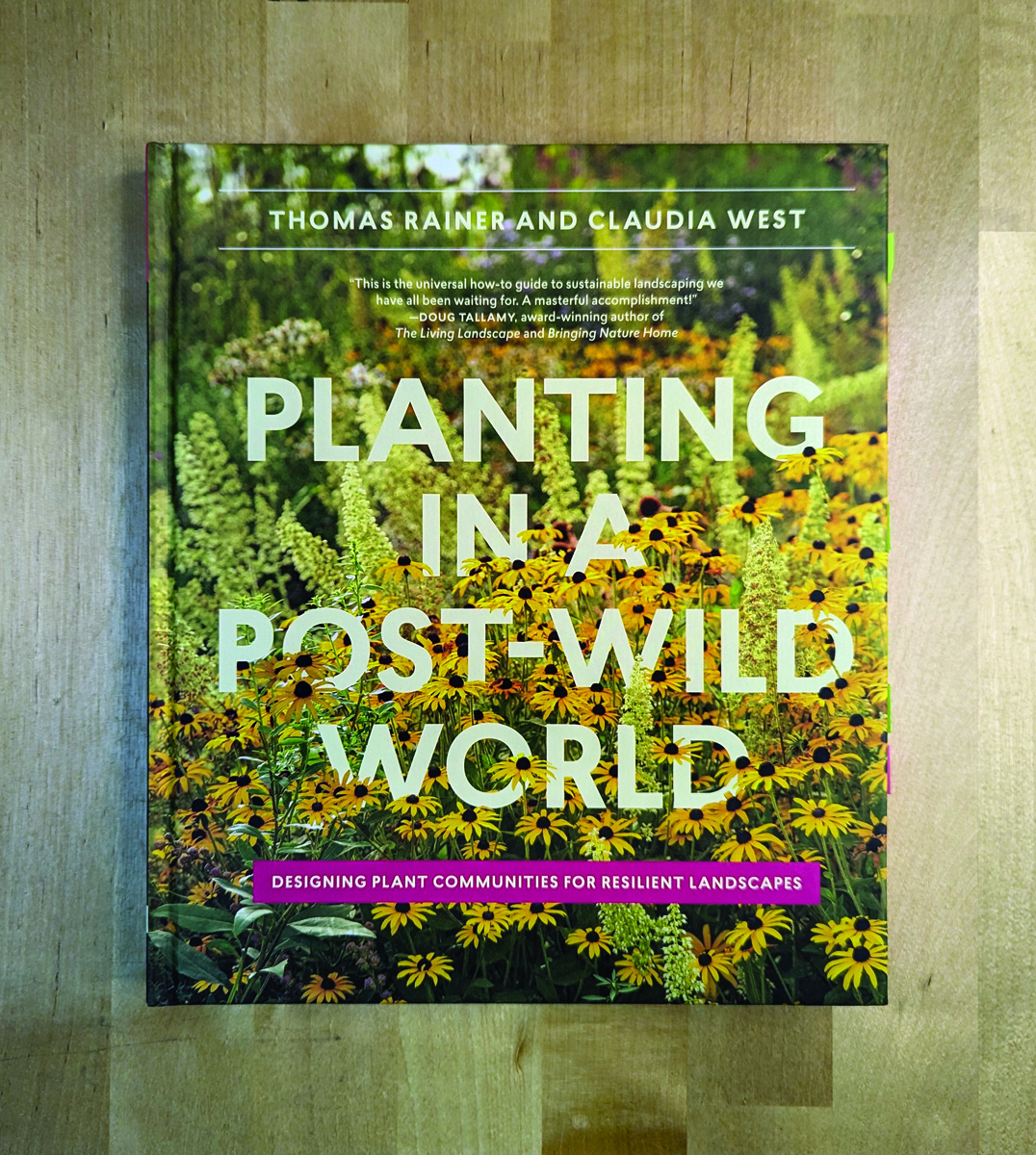
Planting in a Post-Wild World: Designing Plant Communities for Resilient Landscapes
Fine Gardening receives a commission for items purchased through links on this site, including Amazon Associates and other affiliate advertising programs.
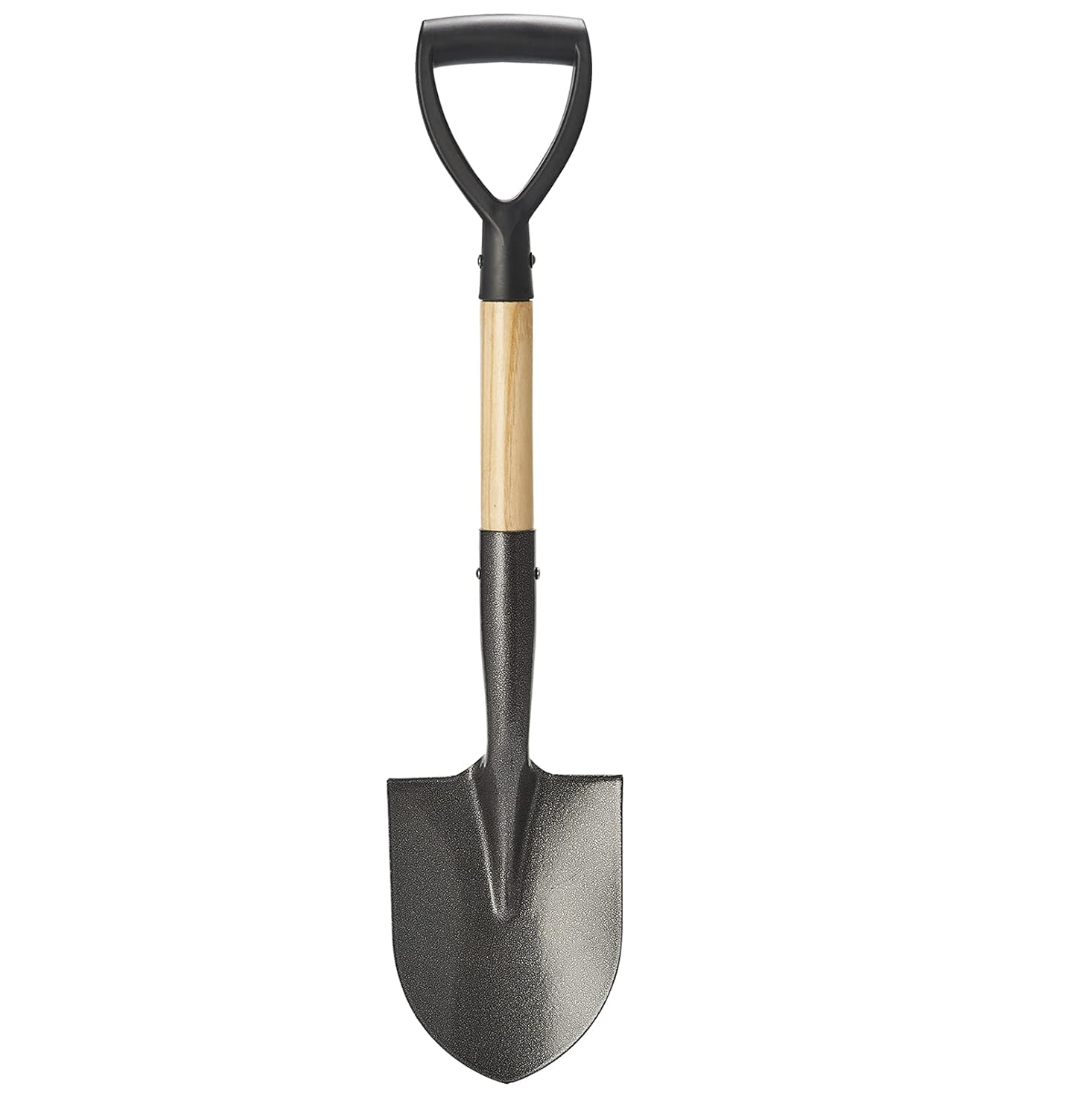
Corona® Multi-Purpose Metal Mini Garden Shovel
Fine Gardening receives a commission for items purchased through links on this site, including Amazon Associates and other affiliate advertising programs.

Rain Bird PATIOKIT Drip Irrigation Patio Watering Kit
Fine Gardening receives a commission for items purchased through links on this site, including Amazon Associates and other affiliate advertising programs.
- Provides drip irrigation for up to 6 planters
- Easy to assemble: just attach to faucet, cut tubing and connect watering devices
- Attaches easily to your outdoor faucet or hose





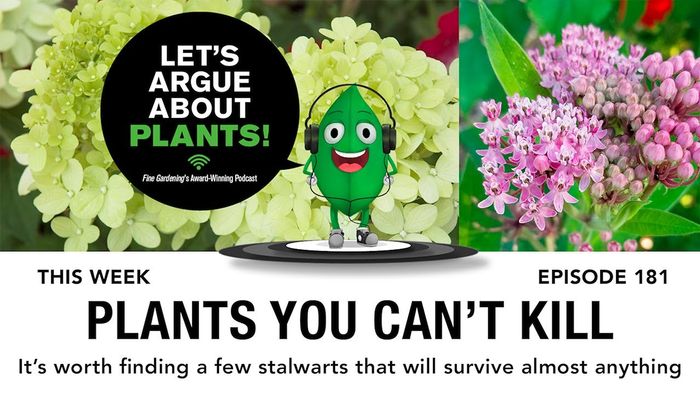
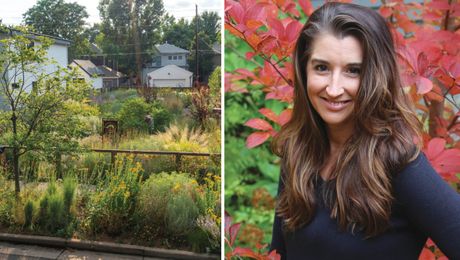
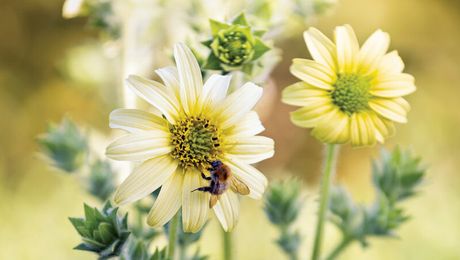










Comments
Stepping stone paths are a great way to be able to do regular maintenance. in deep garden beds. But I might challenge Nicki to place the stones LESS evenly. Consider the shapes of the stones and gang a few pairs to appear as if they are pieces of stone emerging from a rock formation below. Experimenting like that is the beauty of using loose laid materials. For those with extra bricks, groupings of 6 can be laid as an individual step -as if there is a partially buried path
Thanks for the challenge - I like that idea. I was being frugal, since I had to purchase the stone, but as time goes on I will experiment with it.
I'm impressed with what you have accomplished in one year. As you know, it will only get better as it matures and you fine tune it. Great job.
Your sunny flower garden is spectacular- I love it! And I am so glad in your written paragraph you were so candid about the questioning of "why can't I keep butterfly weed alive, etc." because I can totally relate, as I am always question my garden too, as gardens seem to have a mind of their own, resulting in how they turn out visually.
Wow...just so wonderful, I keep staring at your photos of thriving flowers!
Beautiful!
Great job with this joyfully pretty garden!! I am in 100% agreement with your Japanese beetle question... horrendous here this year in the Charlotte, NC area.
Log in or create an account to post a comment.
Sign up Log in